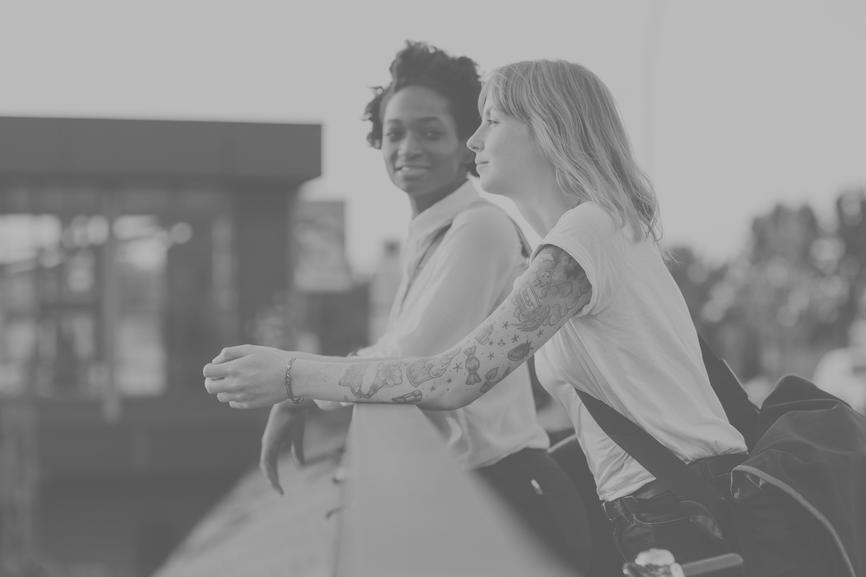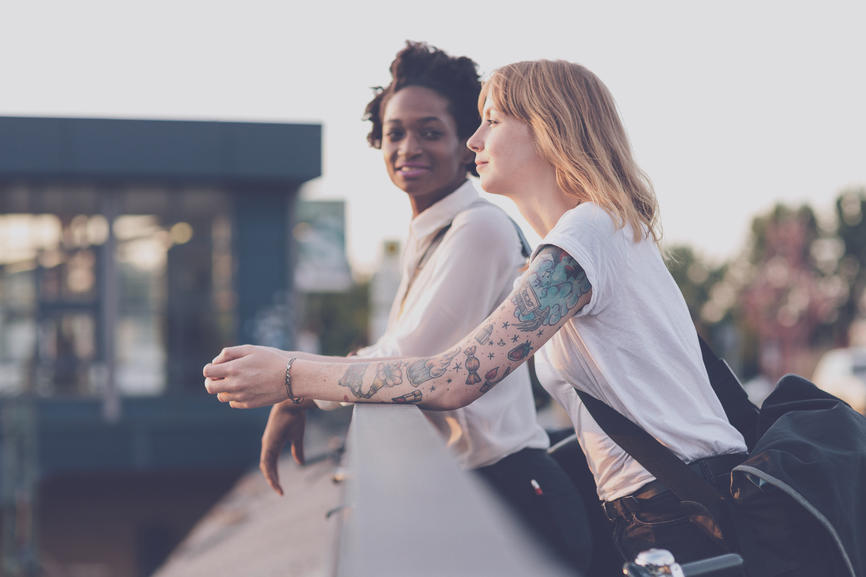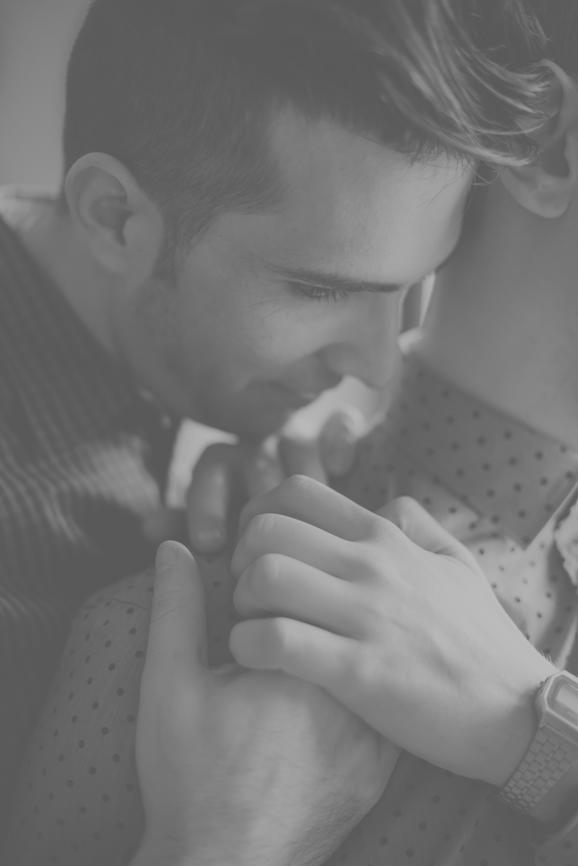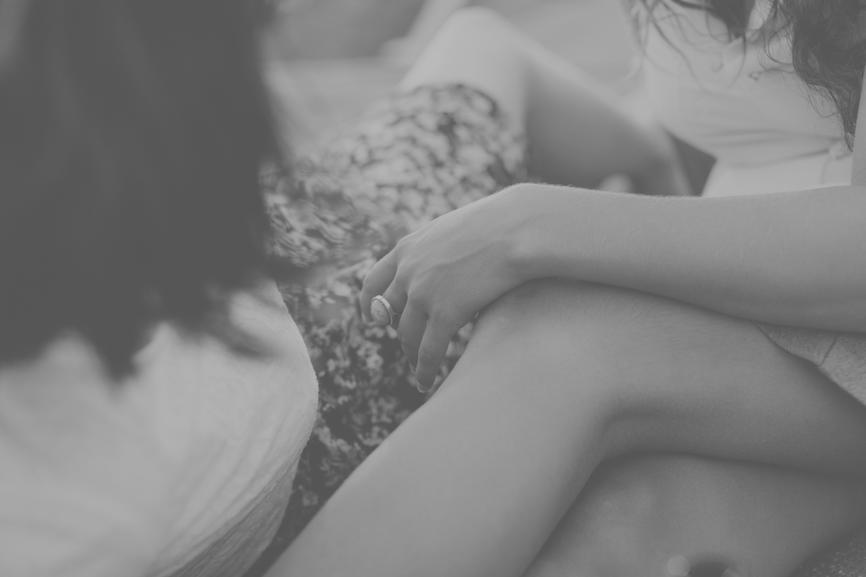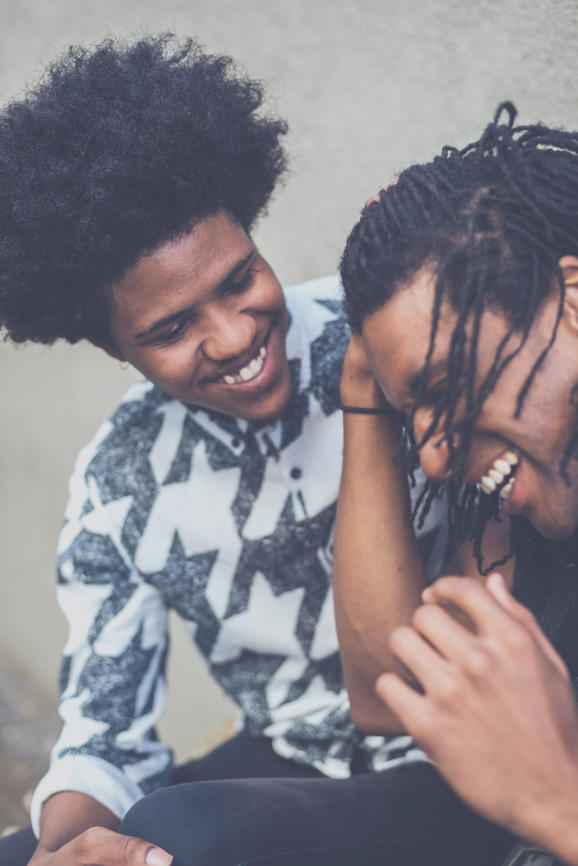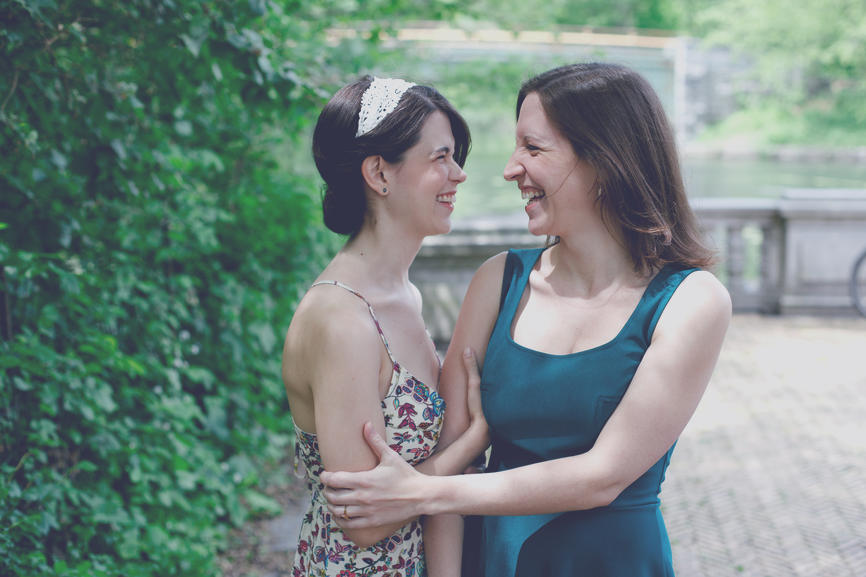Happy Pride! June is LGBT Pride Month across the country.
I love this time of year — the Pride parties, parades and the overall good energy as people celebrate the LGBT community. I also love to reflect on how far we’ve come and the work still yet to do. We got a huge reminder of what’s at stake for us this past Monday.
The Supreme Court decided in favor of two bakers who refused to bake a wedding cake for a gay couple. While the decision was narrowly tailored and rested on faulty procedure by the Colorado Civil Rights Commission, the two men in this case, Charlie Craig and Dave Mullens, were still victims of discrimination based on their sexual orientation. And because the justices did not decide whether baking a cake is protected speech or address the conflict between freedom of religion and equal protection, we will likely see more cases like this in the future.
This instability and insecurity is why we still celebrate Pride month. According to the 2016/2017 LGBT financial survey, respondents were most likely to be worried about unemployment, inflation and unpaid debts (and rightly so considering LGBTQ individuals can still be fired in 28 states for their sexual orientation). Additionally, a huge pay gap exists between LGBTQ individuals and their heterosexual counterparts. Celebrating Pride month helps us keep vigilant in our fight for equality and helps created much needed support from our allies.
Yet Pride’s meaning can sometimes get lost in the celebration and debauchery. So to start off the month-long celebration, I want to take a step back. Let’s explore the history of Pride month, and specifically the Pride Parades.
The Catalyst
In the early morning of June 28th, 1969, eight officers from the New York City’s Public Morals Division, a unit of the police department, raided the Stonewall Inn, a gay bar in New York City’s Greenwich Village. This raid wasn’t unusual in New York (or many other cities). Back then, the Public Morals Division enforced all laws for vice and gambling, including prostitution, narcotics and homosexuality. Cops could arrest and even force hospitalization of gay people.
On this particular evening, however, the bar patrons fought back. It started when Marsha P. Johnson cried “I got my civil rights!” and threw a shot glass into a mirror (now known as “the Shot Glass that was Heard Around the World”). More and more patrons joined the fight, including people from neighboring bars, and mayhem ensued. Hundreds of people resisted arrest and fought against police oppression. Rioters broke windows, set cars on fire and injured three police officers. The police ended up barricading themselves inside the Stonewall Inn.
New York City’s Tactical Patrol Force intervened, but even they were run out of the neighborhood by the rioters. Things eventually calmed down. But once the word got out about the riots, thousands returned the next night to continue the protest. The protest lasted six days.
Increasing Our Pride
Stonewall was not the start of the LGBTQ movement. LGBTQ activists existed as far back as 1920s. But the rage and fervor caused by the Stonewall riots helped catapult the LGBTQ movement to a new level.
Media coverage of the riots allowed others to see, relate and support those fighting for their rights. Events at Stonewall emboldened others to do what they could to help.
The following year, the anniversary of the Stone Wall riots was marked by demonstrations in New York, Chicago, Los Angeles and San Francisco.
At first, the New York City day of celebration was called “Christopher Street Liberation Day.” In Los Angeles and San Francisco, these events became known as “Gay Freedom Marches,” and the day was called “Gay Freedom Day.” Chicago had Gay Pride Week.
The parades were a mix of politics and celebration. They promoted visibility of the LGBTQ community. They also served as a huge megaphone for the LGBTQ needs and rights — like protection against harassment, raising awareness of the AIDS epidemic or fighting for marriage equality. They gave a growing LGBTQ movement a voice and, as support grew, that voice began to be heard.
The culture shifted in the 1980s, as less radical activists began taking over the march committees in different cities. They dropped “Gay Liberation” and “Gay Freedom” from the names, replacing them with “Gay Pride.”
Gay Rights Today
The first few marches drew only a few hundred people, but the Pride parades today include hundreds of thousands. In fact, the 2013, 2014 and 2015 Pride crowds in Chicago had an estimated one million attendees.
We’ve come a long way from the police brutality and stigmatization of the 1970s. We’ve also made it through the AIDS crisis of the 1980s and 1990s. The parades have long been the voice and coming together of the LGBTQ community to celebrate our lives.
For seven straight years, from 2009 through 2016, President Obama officially declared June as LGBT Pride month. We can get married and legally adopt children in all 50 states.
However, there’s still a ways to go. You can still legally be fired in 28 states for being LGBT. The newest administration has already proven that it does not want to take our rights into consideration, especially when it comes to trans rights. Additionally, we are seeing legislation proposed that could water down our rights, and we aren’t being counted in census.
So, as you go out and celebrate this month, don’t forget to acknowledge the sacrifices of those that came before use. Resisting and protesting works. But progress never is a straight line.
You can find more information from me about the fight for marriage equality here.
I also encourage you to read about other significant LGBTQ people that have helped shaped the movement as we know it.
- Frank Kameny and Jack Nichols who picketed the White House in the nation’s first major gay rights protest in 1965.
- Marsha P. Johnson and Sylvia Rivera, who rallied the rioters at Stonewall.
- Brenda Howard, known as the “Mother of Pride”, for her work in coordinating the first Pride March.
- Gilbert Baker, the creator of the Rainbow flag.
You should also check out the amazing content that helped create this post:
- Historian David Carter’s Book Stonewall: The Riots That Sparked the Gay Revolution
- Democracy Now’s 40th Anniversary Special of the Stone Wall Riots
- Dave Isay’s Remembering Stonewall
- Sexplanations with Dr. Doc “History of Pride” episode
And lastly, if you’re just looking for some info on LGBT history, check out the following:
- ABC’s mini-series When We Rise
- CNN’s pictures of the initial Pride Parades
- WBEZ’s Curious City’s episode on the “Making of Chicago’s Boystown“
As always, I would love to hear from you. How are you celebrating your Pride this month? How are you going to honor those that helped pave the way for you?
